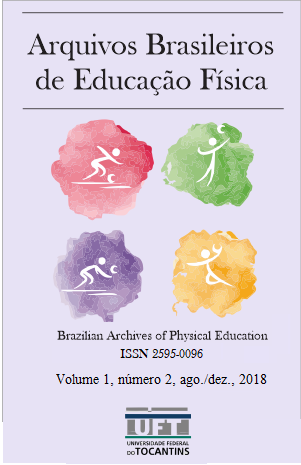Método Bertazzo e educação física
trato pedagógico da ginástica em contexto de trabalho não escolar
DOI:
https://doi.org/10.20873/10.20873/abef.2595-0096.v1n2p83.2018Keywords:
Método Bertazzo., Educação Física, GinásticaAbstract
This study discusses the Bertazzo Method of Reeducation of the Movement and proposes to evidence its relation with the field of Physical Education. Supported by the assumption that every teaching act, depending on the field of intervention, is configured as a pedagogical act, the research aimed to analyze how the didactic-pedagogical treatment with the method in question is presented in gymnastics classes in non-school space. For that, the article was anchored in the qualitative approach and proceeded to the application of semi-structured interview and systematic observation of the classes of a teacher who teaches classes with the Bertazzo Method. The results confirm the existence of a teaching plan combined with the materialization of pedagogical and educational components in the treatment of the Reeducation Movement method in classes held in a non - school intervention area. Therefore, it concludes by pointing to the signaling of the said method in Physical Education in relation to the educational processes with the body, evidencing work proposals conditioned by oriented learning, manifested in the didactic-pedagogical systematization with Reeducation of Movement.
Downloads
Published
How to Cite
Issue
Section
License
Proposal for Copyright Notice Creative Commons
1. Policy Proposal to Open Access Journals
Authors who publish with this journal agree to the following terms:
A. Authors retain copyright and grant the journal right of first publication with the work simultaneously licensed under the Creative Commons Attribution License that allows sharing the work with recognition of its initial publication in this journal.
B. Authors are able to take on additional contracts separately, non-exclusive distribution of the version of the paper published in this journal (ex .: publish in an institutional repository or as a book), with an acknowledgment of its initial publication in this journal.
C. Authors are permitted and encouraged to post their work online (eg .: in institutional repositories or on their website) at any point before or during the editorial process, as it can lead to productive exchanges, as well as increase the impact and the citation of published work (See the Effect of Open Access).

